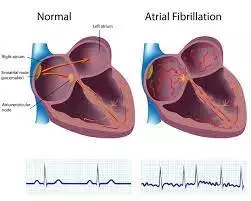- Home
- Medical news & Guidelines
- Anesthesiology
- Cardiology and CTVS
- Critical Care
- Dentistry
- Dermatology
- Diabetes and Endocrinology
- ENT
- Gastroenterology
- Medicine
- Nephrology
- Neurology
- Obstretics-Gynaecology
- Oncology
- Ophthalmology
- Orthopaedics
- Pediatrics-Neonatology
- Psychiatry
- Pulmonology
- Radiology
- Surgery
- Urology
- Laboratory Medicine
- Diet
- Nursing
- Paramedical
- Physiotherapy
- Health news
- Fact Check
- Bone Health Fact Check
- Brain Health Fact Check
- Cancer Related Fact Check
- Child Care Fact Check
- Dental and oral health fact check
- Diabetes and metabolic health fact check
- Diet and Nutrition Fact Check
- Eye and ENT Care Fact Check
- Fitness fact check
- Gut health fact check
- Heart health fact check
- Kidney health fact check
- Medical education fact check
- Men's health fact check
- Respiratory fact check
- Skin and hair care fact check
- Vaccine and Immunization fact check
- Women's health fact check
- AYUSH
- State News
- Andaman and Nicobar Islands
- Andhra Pradesh
- Arunachal Pradesh
- Assam
- Bihar
- Chandigarh
- Chattisgarh
- Dadra and Nagar Haveli
- Daman and Diu
- Delhi
- Goa
- Gujarat
- Haryana
- Himachal Pradesh
- Jammu & Kashmir
- Jharkhand
- Karnataka
- Kerala
- Ladakh
- Lakshadweep
- Madhya Pradesh
- Maharashtra
- Manipur
- Meghalaya
- Mizoram
- Nagaland
- Odisha
- Puducherry
- Punjab
- Rajasthan
- Sikkim
- Tamil Nadu
- Telangana
- Tripura
- Uttar Pradesh
- Uttrakhand
- West Bengal
- Medical Education
- Industry
DR-FLASH score useful tool to predict ideal ablation strategy for patients with AF: study

DR-FLASH score is a useful tool to predict ideal ablation strategy for patients with atrial fibrillation suggests a recent study published in the Journal of the American Heart Association
Modification of arrhythmogenic substrates with extensive ablation comprising linear and/or complex fractional atrial electrogram ablation in addition to pulmonary vein isolation (PVI‐plus) can theoretically reduce the recurrence of atrial fibrillation. The DR‐FLASH score (score based on diabetes mellitus, renal dysfunction, persistent form of atrial fibrillation, left atrial diameter >45 mm, age >65 years, female sex, and hypertension) is reportedly useful for identifying patients with arrhythmogenic substrates. They hypothesized that, in patients with persistent atrial fibrillation, the DR‐FLASH score can be used to classify patients into those who require PVI‐plus and those for whom a PVI‐only strategy is sufficient.
This study is a post hoc subanalysis of a multicenter, randomized controlled, noninferiority trial investigating the efficacy and safety of pulmonary vein isolation alone for recurrence prevention compared with extensive ablation in patients with persistent atrial fibrillation (EARNEST‐PVI trial). This analysis focuses on the relationship between the DR‐FLASH score and the efficacy of different ablation strategies. They divided the population into 2 groups based on a DR‐FLASH score of 3 points.
Results:
- A total of 469 patients were analyzed. Among those with a DR‐FLASH score >3 (N=279), the event rate of atrial arrhythmia recurrence was significantly lower in the PVI‐plus arm than in the PVI‐only arm
- In contrast, among patients with a DR‐FLASH score ≤3 (N=217), no differences were observed in the event rate of atrial arrhythmia recurrence between the PVI‐only arm and the PVI‐plus arm
- There was significant interaction between patients with a DR‐FLASH score >3 and DR‐FLASH score ≤3
Thus, the DR‐FLASH score is a useful tool for deciding the catheter ablation strategy for patients with persistent atrial fibrillation.
Reference:
Taiki Sato, Yohei Sotomi et al. DR‐FLASH Score Is Useful for Identifying Patients With Persistent Atrial Fibrillation Who Require Extensive Catheter Ablation Procedures. 5 Aug 2022 https://doi.org/10.1161/JAHA.121.024916 Journal of the American Heart Association. 2022;11:e024916
Dr. Shravani Dali has completed her BDS from Pravara institute of medical sciences, loni. Following which she extensively worked in the healthcare sector for 2+ years. She has been actively involved in writing blogs in field of health and wellness. Currently she is pursuing her Masters of public health-health administration from Tata institute of social sciences. She can be contacted at editorial@medicaldialogues.in.
Dr Kamal Kant Kohli-MBBS, DTCD- a chest specialist with more than 30 years of practice and a flair for writing clinical articles, Dr Kamal Kant Kohli joined Medical Dialogues as a Chief Editor of Medical News. Besides writing articles, as an editor, he proofreads and verifies all the medical content published on Medical Dialogues including those coming from journals, studies,medical conferences,guidelines etc. Email: drkohli@medicaldialogues.in. Contact no. 011-43720751


